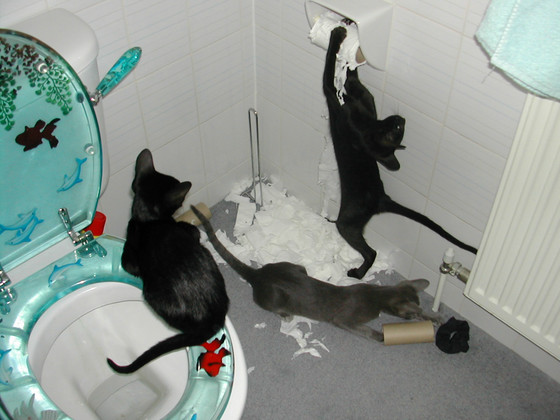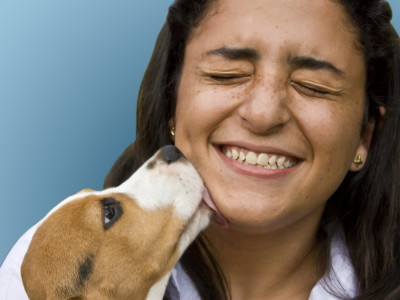It is not because it is a psychopath that the cat takes a cryptic behavior but it may reflect the character of the owner

It is often said that cats do not reflect the character of their owners, either because there is an image that "cats do not appreciate much" to people. Therefore, it seems that the owner who is worried that "cat in our house is a psychopath " when cats keep repeating too cryptic problem behaviors. About the problem behaviors of cats such as "It is not because it is caused by a psychopath, it may be because it was influenced by the personality of the owner" has been reported.
Why We Think Cats Are Psychopaths - The Atlantic
https://www.theatlantic.com/science/archive/2019/02/cat-psychopaths/583192/
Owner personality and the wellbeing of their cats share parallels with the parent-child relationship
https://journals.plos.org/plosone/article?id=10.1371/journal.pone.0211862
If Your Cat's Neurotic, Scientists Say It's Probably Just Mirroring You
https://www.sciencealert.com/scientists-say-your-cat-is-probably-mirroring-your-own-personality
Becky Evans, a psychology graduate student at the University of Liverpool, conducts a questionnaire survey on owners who suffer from "their cats may be psychopaths", and among them, "like psychopaths What is the behavior of the cat? " As a result, it seems that typical cat actions such as "teasing other pets", "robbing a dog's bed", "ambush in the kitchen counter to attack the owner's family" were reported.
If any cat owners would be willing to spare 10 minutes to answer this questionnaire I would be very grateful !??? https://t.co/WsFfeUo1uN pic.twitter.com/bBwEy6CChH
- Becky (@ BeckyEvans 96) February 8, 2019
Mikel Maria Delgado who studies the behavioral psychology of cats at the University of California is one reason why the owner who saw the general behavior of the cat thinks it is psychopath is because the way to make facial expression is different between dog and cat I pointed out.
Dogs are rich in facial muscles, emotions tend to appear on their faces, and it is said that dogs can imitate humans and express smiling faces in the long history of coexisting with human beings. In fact, it is highly probable that dogs who raise their eyebrows and make a cute smile in a research arguing that "various facial expressions give dogs a selective advantage" are more likely to be received by humans from shelters It is shown.

However, cats are basically fewer in expression muscles than humans and dogs, so we are not good at showing emotions finely in the face. Instead, cats use their ears and tails to communicate. An owner who is unaware of the cat's body language can not understand the feelings of the cat, and watching a cat who acts as if he / she is idle, he says "my cat is a psychopath?" The Atlantic says, "Talk to an experienced owner and you will soon see that cat behavior that looks like a psychopath is never a big deal".

It is a cat that tends to be suspicious of such "psychopaths", but of course, emotions and personality exist, just not having the expression on the face. A research team led by Mr. Lauren Finka, an animal welfare researcher at Nottingham Trent University , conducted a questionnaire survey on 3165 owning owners of cats over 18 years old. In this questionnaire we asked about the age and breed of the cat we are keeping, health condition and concerned problem behaviors.
In the questionnaire survey, not only the question for the cat, but also the character classification by the big five was done to the owner. Big Five is a characteristic theory that "human nature consists of five factors:" openness "" cooperativeness "" integrity "" extroversion "" neuroticism tendency "", I evaluated it with numerical value.
As a result of the survey, 92% of respondents were female, and that age group was 25 to 44 years old occupied half of the total. The average number of cats per capita is 1.4 animals, and the average age of cats is about 7.2 years. It seems that 92% of the whole was castrated. 76.6% of owners said that "there is no medical condition in their cats," the rest reported chronic symptoms such as internal organs, tumors, cognitive impairment. 45% of owners were partially released, and it seems that 26.1% of the owners who do not take cats from home at all take their place.
Among the owners who received the questionnaire, 20% answered that their cats were causing problem behavior. And "aggressiveness" "to try anything" "to defile the house" "scratch the furniture" "to threaten thoroughly" etc. are reported as problem behaviors.

by Chantal Lyons
By combining the results of these questionnaires and the owner's character classification, the research team insists that "cats might reflect the character aspects of their owner's character." For example, cats with higher neurotic tendencies often have cats with overweight and sickness, and tended to report problem behavior derived from anxiety, fear, and stress.
Also, owners with high integrity and openness tend to report that their cats are greedy with selfishness, but they often say that they are not aggressive on the other hand. It was also found that cats with high integrity are not reported much problem behaviors.

Finka says, "The majority of owners want to provide the best care for their cats, so that this result shows that an important relationship is created between the personality of the owner and the happiness of the pet I am arguing. " "However, further research is necessary to declare that the character of the owner is directly affecting the behavior of the cat," Finka comments.
Danielle Gunn-Moore, who specializes in studying cats at the University of Edinburgh, said: "A cat is my small alter ego, a sentimental creature that is strongly influenced by the surrounding people, closely tied to the owner and influence each other I will do it. " Finka says, "Living as a human pet may not necessarily be easy for a cat.What we are affecting on cats what human behavior is affecting cats in both positive side and negative side It is important to do it. "
Related Posts:
in Creature, Posted by log1i_yk







